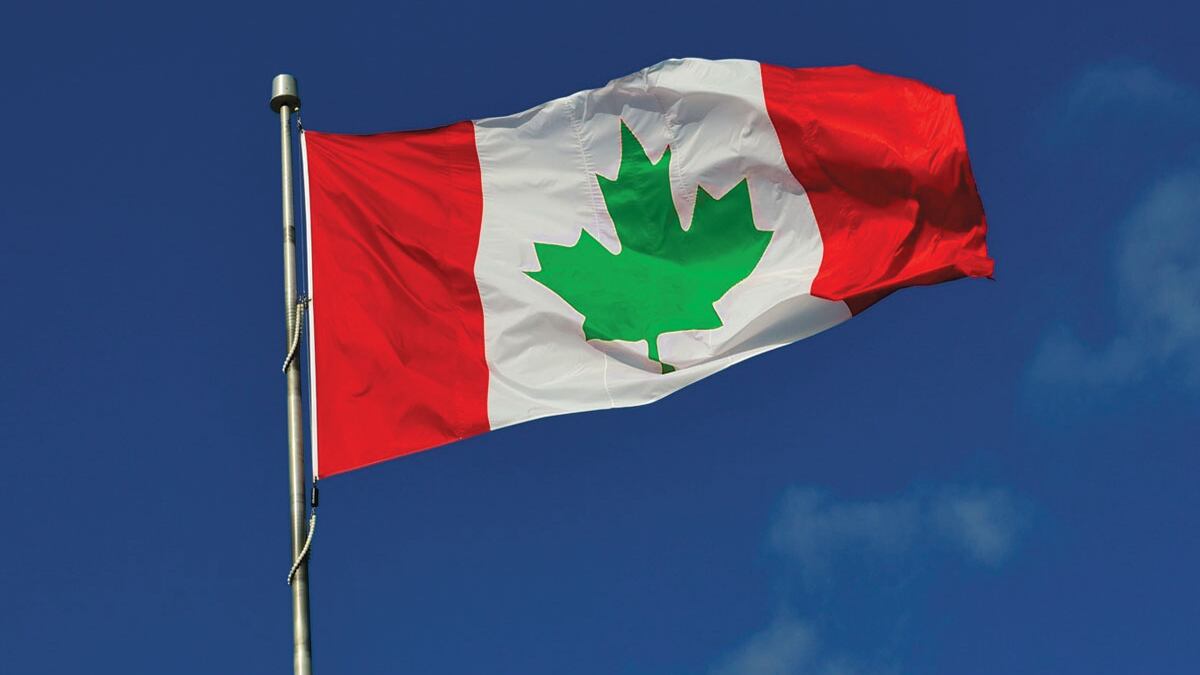The Great White North is going green.
On Oct. 17, Canada becomes the second country in the world to legalize recreational cannabis. While Uruguay got their first, the impact on the global market figures to be much more substantial.
But how exactly? And what does this mean, specifically, for Oregon?
WW spoke to Portland cannabis economist Beau Whitney, vice president of New Frontier Data, about the ramifications of Canada's federal adult-use program on Oregon's own legal market, its potential to nudge the United States toward national decriminalization, and which country might be next.
WW: What does Canadian legalization mean for Oregon?
Beau Whitney: What we're seeing is that there's a huge acceleration in the cannabis investment community because of legalization in Canada. As licensed producers and other folks that are publicly traded on the Toronto Stock Exchange and the CSE, the Canadian Securities Exchange, they get access to capital, especially the early adopters in Canada. They're accumulating these large war chests of money that they can, in turn, invest in other markets. Some of it's being deployed domestically in Canada, some of it's being deployed internationally, but they're also taking that money and investing it in Oregon, California, Washington and elsewhere. Also, some Oregon companies have been listed on the Canadian Securities Exchange, just so they could get access to capital, because they don't have the option of doing it on the Nasdaq or the New York Stock Exchange, for example.
What does that mean in the long term for the Oregon market?
With respect to Canada, as they invest in Oregon, a lot of that money will conceivably stay local because you're hiring Oregonians, and it's a complex issue to repatriate profits out of Oregon and into Canada. So as investment comes in, that money is going to have a conceivably positive economic impact on the Oregon economy.
In what ways will legal cannabis in Canada look different from here?
There are similarities to both markets, but there are also significant differences. For example, in Canada, it's federally legal, so you can literally ship it in the mail. What's different about Oregon is, you have so many different product offerings. You have different delivery mechanisms in the market, such as edibles or tinctures and the like, whereas you don't have edibles, for example, in the Canadian space. We're anticipating that type of product offering will not be available to the Canadian consumer until sometime mid- to late 2019, if not into 2020. So there's a more sophisticated market here in Oregon.
Is oversupply going to be an issue in Canada as it has been here in Oregon?
Yes it is. There's over 100 licensed producers, and there's also a large number of applications in the queue in Canada. So there's a lot of people that want to enter into the market. However, the early entrants into this market, groups like Canopy Growth or Aphria or Aurora Cannabis—these are licensed producers that got in early, went public and have amassed huge war chests of money to deploy as this market opens up. And what they're doing is, they're deploying that capital in order to increase their capacity. In Canada, they call it "planned capacity." And so they are lining up greenhouses and production facilities and the like in order to expand their capacity just for their own company, not necessarily just for the market. And what this will do, if it's realized, it'll drive further supply in the market and it'll drive down prices as well. We're anticipating there's going to be oversupply, there's going to be a burst in the stocks, and then kind of a reset of the market once all is said and done.
Which country is tracking as the next to legalize?
It was just announced that the supreme court of South Africa made a determination that says it's a basic human right to be able to possess cannabis. That's de facto legalization. So seemingly overnight that decision came down and it created all sorts of momentum and opportunities in the African continent.
How much how much closer realistically do you feel like this gets the U.S. to federal decriminalization?
I think of it this way. We've got a federally legal program for both medical and adult use in Canada. On the southern border, you've got Mexico considering deploying a legal medical marijuana system. So you've got neighbors to the north and to the south both with some form of federal legalization for cannabis. In addition to that, you've got an ever-growing increase of popularity and support for legalized adult-use programs in the United States. The last Pew survey was 62 percent in favor of full adult-use legalization in the United States. An overwhelming majority, 95 percent plus, in the United States think there should be full medical marijuana legalization, at a minimum. It's just going to add to that momentum that was generated by the first states that legalized.

